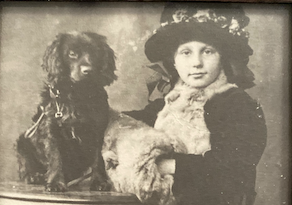Note on a day with few words from Hilda: When I began reading her diary, I wondered whether an adult (Hilda or someone else) had edited the entries — she often seemed more clever and worldly than I could imagine or remember a child being. I have few memories from that age. A few readers wrote me similar comments.
As the year began, I happened to read two novels which were told in the voice of or from the point of view of 9-year olds – Miriam Toews’ Fight Night and Richard Powers Bewilderment. I recalled the books of author Marissa Moss, whose Amelia’s Notebook series begins when the “author” is in 5th grade. My grandmother’s memoirs paint a portrait of herself as a precocious, articulate, sometimes infuriating child. A few of her letters tell stories showing her children in a similar light. Then I recalled being a summer camp counselor for 9 or 10 year old girls when I was a teenager. All of these children — whether fictional or real — were smart, funny, articulate, curious, and at the same time naive and innocent.
Having read these books and stories, and remembered those actual girls, I realize I did Hilda a disservice in doubting the truth of her words. She was an intelligent, clever, and emotional child living in a house full of adults, most of whom did not encourage her to play, pretend, or tell stories. Her diary was the only safe place for her thoughts and feelings.





